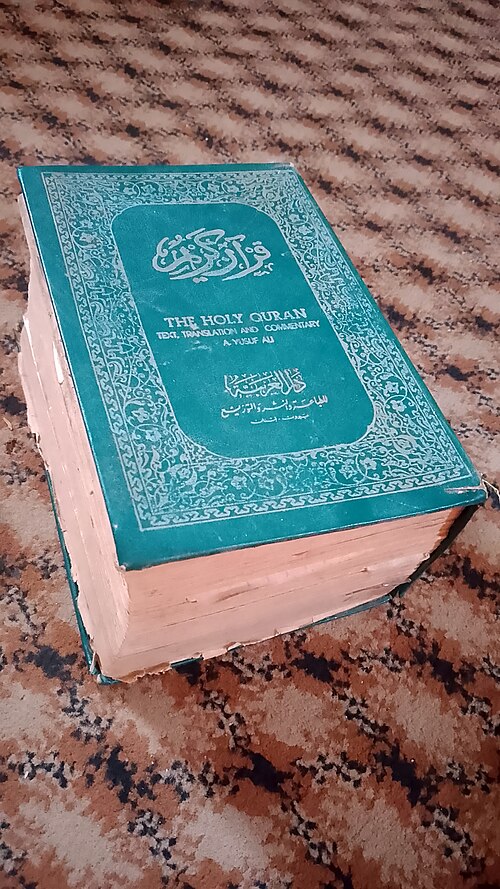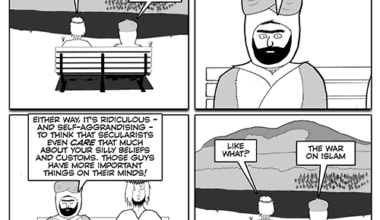This article is republished with permission from the National Secular Society website, where it first appeared on 9 April 2025.
Earlier this year the Home Secretary Yvette Cooper told Parliament: “we do not have a blasphemy law in this country, nor will we have one.”
But the prosecution of a man for burning a Quran outside the Turkish consulate in London casts serious doubt over this statement.
Hamit Coskun is reported to have said he was protesting against the president of Turkey, Recep Tayyip Erdoğan, and what he described as Turkey being turned into a “base for radical Islamists”.
Coskun was arrested and subsequently charged with intent to cause harassment, alarm or distress “against the religious institution of Islam”.
Troubled by prosecutors’ interpretation of the law and concerned that this amounted an unlawful blasphemy prosecution, the National Secular Society sought legal advice. The opinion of leading human rights barrister Akua Reindorf KC supports our concerns.
According to Reindorf, the charge against Coskun is “plainly defective”, with the principal “fatal” flaw being that “the religious institution of Islam” is not a “person” under English law. This distinction is vital because treating a religious institution as a person evokes the notion of blasphemy – a common law offence that was abolished in England and Wales in 2008 and never applied to religions other than Christianity anyway.
Coskun’s Quran burning was apparently an act of political protest – a form of expression robustly protected under Article 10 of the European Convention on Human Rights, which guarantees the right to free speech.
A conviction in this case would effectively amount to the criminalisation of the act of desecrating a religious text in a public place – precisely what the Labour MP for Birmingham Hall Green and Moseley, Tahir Ali, called for at PMQs in November last year.
In response, the Government completely ruled out any introduction of blasphemy laws. But the troubling application of public order laws in Coskun’s case means we might already be living under something a lot like them.
Reindorf told us: “Both the wording of the charge and any conviction based on these facts would tend to suggest the reinstatement in English law of an offense of blasphemy by the back door, such an offence having been abolished in 2008”.
Clearly there is a strong argument that the Criminal Prosecution Service should drop the charges against Coskun – and the NSS has written to the Chief Crown Prosecutor urging it to do so.
But the implications of this case extend beyond the individual, affecting broader principles of free speech.
This case comes in the context of a growing global push to protect not only individuals from hatred, but also religious books and symbols from desecration.
In July 2023 members of the UN Human Rights Council voted in support of a contested resolution brought by Pakistan which equated all acts of “desecration of sacred books and religious symbols” with manifestations of religious hatred.
The UK rightly pushed back and voted against the resolution. Simon Manley, the UK’s Permanent Representative at the UN, explained: “International human rights law provides us with narrowly defined parameters in which freedom of expression can be limited. And we do not accept that, by definition, attacks on religion, including on religious texts or symbols, constitute advocacy for hatred.”
Freedom of expression is a qualified right, which means it can be restricted for certain purposes to the extent necessary in a democratic society. It’s not always easy to determine at what point freedom of expression becomes unacceptable, and when unacceptable speech or action should be legally prohibited.
But successive court rulings have confirmed that freedom of expression includes expressing views that offend, shock or disturb. As Lord Justice Sir Stephen Sedley said in a 1999 ruling: “Free speech includes not only the inoffensive but the irritating, the contentious, the eccentric, the heretical, the unwelcome and the provocative provided it does not tend to provoke violence. Freedom only to speak inoffensively is not worth having”.
The concept of ‘Islamophobia’ has distorted the critical distinction between prejudice and hatred directed at Muslims as individuals, and legitimate criticism of Islam or Islamism as ideologies. It is essential to uphold this distinction, as conflating the desecration of religious texts and symbols with incitement to hatred risks reinstating blasphemy prohibitions that fundamentally contradict human rights principles. Lawmakers, police, prosecutors, and the courts must recognise and clarify this line.
During his protest, Coskun was subjected to a physical attack by an individual wielding a knife. However, the protest itself was fundamentally non-violent. The violent actions of one aggressor reacting to the perceived desecration of the Quran does not warrant the infringement of Coskun’s right to freedom of expression.
Our collective right to free speech can’t be dictated by the subjective reactions of others. Individuals deserve protection, but beliefs, symbols, and sacred texts should not be granted the same status.
The unjust and illiberal prosecution of Hamit Coskun is a significant misstep in this regard, and it must be dropped. Freedom of expression is a cornerstone of a free and democratic society. We cannot afford to compromise it. We have to hold the line in defending the rights of all individuals to voice their views, whether we agree with them or not.
Listen to Stephen Evans being interviewed about the case with Trevor Phillips on Times Radio
Related reading
Kant vs Tahir Ali: why desecration should not be outlawed, by Daniel Herbert
The power of outrage, by Tehreem Azeem
Salwan Momika and the right to burn books, by Noel Yaxley
The perils of dropping a book, by Noel Yaxley
The need to rekindle irreverence for Islam in Muslim thought, by Kunwar Khuldune Shahid
The Galileo of Pakistan? Interview with Professor Sher Ali, by Ehtesham Hassan
10 years since the Charlie Hebdo attack: a message from the Freethinker, by Daniel James Sharp
Charlie Hebdo: An open letter to the free world from a freethinker, by Khadija Khan
Storm over a tea-cup? The ‘Mug-Gate’ teacher speaks out, by Matt Lovell
Image of the week: ‘Moses Getting a Back View’ (1882), by Daniel James Sharp
Britain’s blasphemy heritage, by David Nash
Secularism and the struggle for free speech, by Stephen Evans
Britain’s liberal imam: Interview with Taj Hargey, by Emma Park
The return of non-crime hate incidents: tyranny back on the march, by Noel Yaxley








Your email address will not be published. Comments are subject to our Community Guidelines. Required fields are marked *
Donate